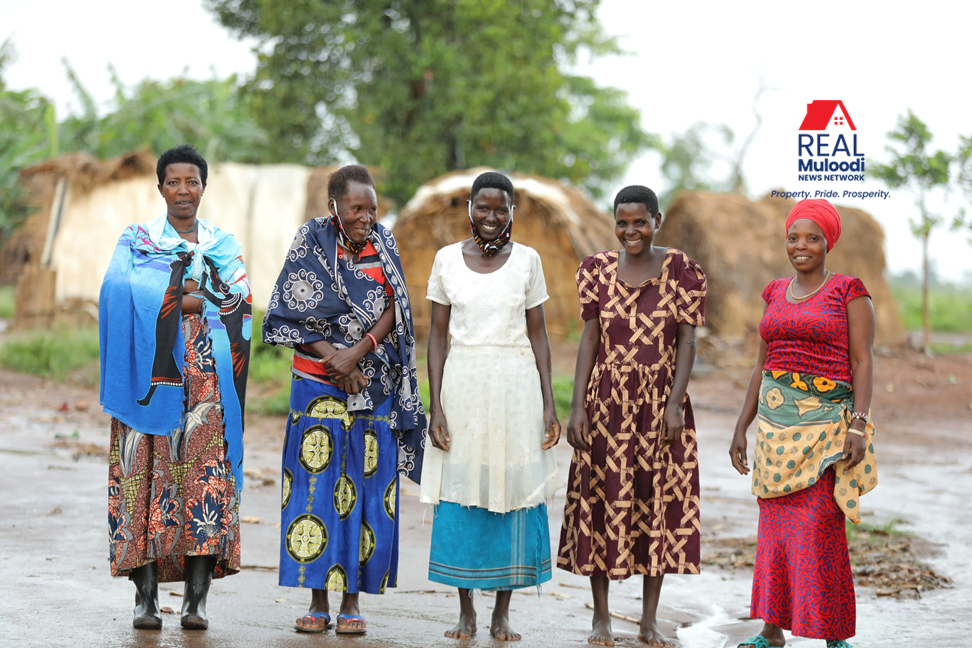UGANDA, Nwoya | Real Muloodi News | In Lapono Village, Alokolum-gok parish, Anaka Sub-county in Nwoya District, Ms Angela Abur, 67, was startled to see land surveyors marking coordinates on her land.
It was revealed that a new landowner who had just purchased the nine-acre land from one of Abur’s neighbours a month prior had given the surveyors the instructions.
Following the disturbing occurrence, Ms Abur and her new neighbour got into a heated argument. It grabbed the attention of the police as well, and after a week, the sub-county officials got engaged to resolve the issue.
“The LC1’s office did not help until I involved the village paralegal team who mediated the matter together with the sub-county land tribunal until it was solved,” Ms Abur said.
The Anaka Sub-county area land committee’s chairman, Mr. Galdino Ongwech, claimed that it took some time to negotiate and resolve the land dispute. This is so that Ms. Abur can use the certificate of customary land ownership that was previously provided to her a year earlier. It provided undeniable proof of her land boundaries.
“It took less than a week to solve and this made it very easy to identify the boundary and put the two parties to order,” Mr Ongwech said.
Compared to the past, Mr Ongwech claims it now takes less time to negotiate and resolve land conflicts in the sub-county. This is due to the support provided by paralegals and other women’s action organisations, which began two years ago.
Nwoya women recently created grassroots institutions in the Amuru District to address the ongoing misuse of land rights against marginalised groups, including elderly women, single mothers, and widows in their communities.
Women have organised paralegal teams and action groups in the Anaka, Purongo, and Alero sub-counties to resolve land disputes and educate locals on their rights to equal access and ownership of land.
Ms Abur escaped the Lord’s Resistance Army insurrection in 1997 and went to Masindi District; she came back in 2014 to protect her four-acre land in Alokolum-Gok Village. She has made the land her home along with her two children and four grandchildren.
“The women’s group in my village approached me and my neighbours to talk to us about land rights and the need to document and register my land with the district. That is how I got the certificate of customary ownership for my land,” she said.
Her neighbours initially opposed the proposal because they believed it was a plot to seize their land. Ms Abur claimed she did not regret her choice, nevertheless.
A resident of Alokolum-Gok parish and member of the paralegal group, Ms Fiona Aporomon, described how she joined the organisation two years ago after fighting to reclaim her three-acre plot of land from her in-laws after her husband passed away.
She is one of several witnesses who affirm that under traditional circumstances, married women, widows, the elderly, and single moms have a right to land.
However, the desire to sell land to purchasers, a lack of government protections, and population pressure have changed the course of events.
“Like we single mothers who returned home after a failed marriage, they (relatives) kick you out of the land, sell it and force you to leave the family. Besides our efforts, the government and civil society organisations must carry out more sensitisation,” she added.
The paralegal institutions, according to Ms Aporomon, have helped them resolve land disputes.
“Upon invitation of the parties, we mediate the wrangles. Using both the paralegal and reflex action groups, we also counsel the parties on the importance of registering their land and having their borders defined,” she added.
READ MORE LIKE THIS:
Uganda Proposes 7-year Jail Term for Evicting Widows & Orphans



